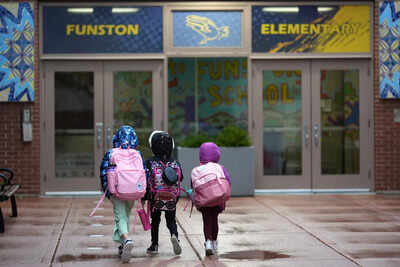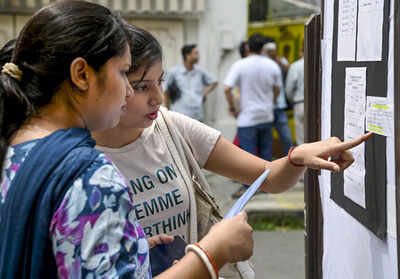ICE crackdown leads to rising school absences in Chicago immigrant communities, widening existing gaps for English learners

Schools in immigrant neighbourhoods of Chicago are seeing a noticeable rise in absences. Students are staying home because they are afraid their parents might be detained while they are in class. Teachers say young people are volunteering to babysit younger siblings or taking paid shifts when undocumented adults avoid stepping out.The trigger is Operation Midway Blitz. Federal immigration agents are active across several Chicago communities. Although schools are sensitive locations where enforcement is not supposed to happen, fear has spread to school gates.According to data reported by Chalkbeat, attendance dropped by 4 percentage points at one high school in the first month of the immigration operation, which was nearly triple the citywide decline during that period. Attendance among English learners also fell more than the district average.Educators say this has turned into an education crisis hiding inside an immigration one.
Why school suddenly feels unsafe
Public schools in the United States are legally obligated to enrol every child regardless of immigration status. Many families in cities like Chicago have trusted schools as the safest place in the neighbourhood.Now parents are asking basic questions. Who will drop the children? Who will pick them up? What if the walk home involves a checkpoint?A mother in Chicago told Chalkbeat she fears for her daughter even though the teenager is a U.S. citizen. Other parents have pulled children out of after school activities and sports that would keep them outside after dark.The fear is strongest during drop off and dismissal. Teachers describe an atmosphere that reminds them of the early pandemic months, but with a different kind of threat.
The aftermath of every missed day
Skipping school has a long term cost.Research in multiple states has shown that immigration crackdowns affect student engagement and performance. Education researchers at Stanford University recorded an average 22 percent increase in school absences in one California region after the first Trump inauguration. A study in Connecticut by Brown University found higher rates of chronic absenteeism among English learners in neighbourhoods where immigration enforcement rose.English learners already face a learning gap. Every missed day widens it.Chicago teachers say newly arrived students who speak limited English are missing the most days. These are the same students who need personal interaction and school routines the most.Counsellors are also worried about trauma. Younger children may not fully understand what is happening but they feel the tension. Teenagers are quietly preparing for worst case scenarios and thinking of what would happen to siblings if parents disappear.
Schools search for solutions
Chicago Public Schools told Chalkbeat that it has asked principals to treat absences caused by fear or anxiety as excused. Students will not be punished for missing school and can make up academic work.Some teachers have begun walking groups of children to and from school. Parent volunteers are creating informal “walking trains” so that no student travels alone.One strategy borrowed from community groups is Know Your Rights training. Schools are helping students learn how to identify themselves, when to stay silent and who to call if they are detained. Staff members stand outside during arrival and pickup, ready to alert families if they see anything unusual.The Chicago Teachers Union has asked the district to expand its Virtual Academy so that families who feel unsafe can continue learning from home. For now, officials say that a governor’s emergency order would be required to bring back large scale remote learning.
A national education challenge
What is happening in Chicago is part of a broader shift.Federal immigration enforcement has become more visible in cities. Local school districts are being pulled into the effects, even though they do not set immigration rules.Educators worry that students are getting a message. Education is important but not important enough to guarantee your safety on the way there.Many school leaders want clear public statements from both city and federal officials that schools and school routes will not be targeted. They say attendance will only improve if families feel protected by more than spoken assurances.
The larger question
Schools have become places where children learn reading and math. For millions, they are also places where children learn what country they belong to.Teachers in immigrant communities across the United States are now dealing with a question that has no easy answer. How do you convince a child to come to school when the journey itself feels dangerous.The answer will determine more than attendance figures. It will shape whether students in these communities continue to believe education is their path to a better future.






